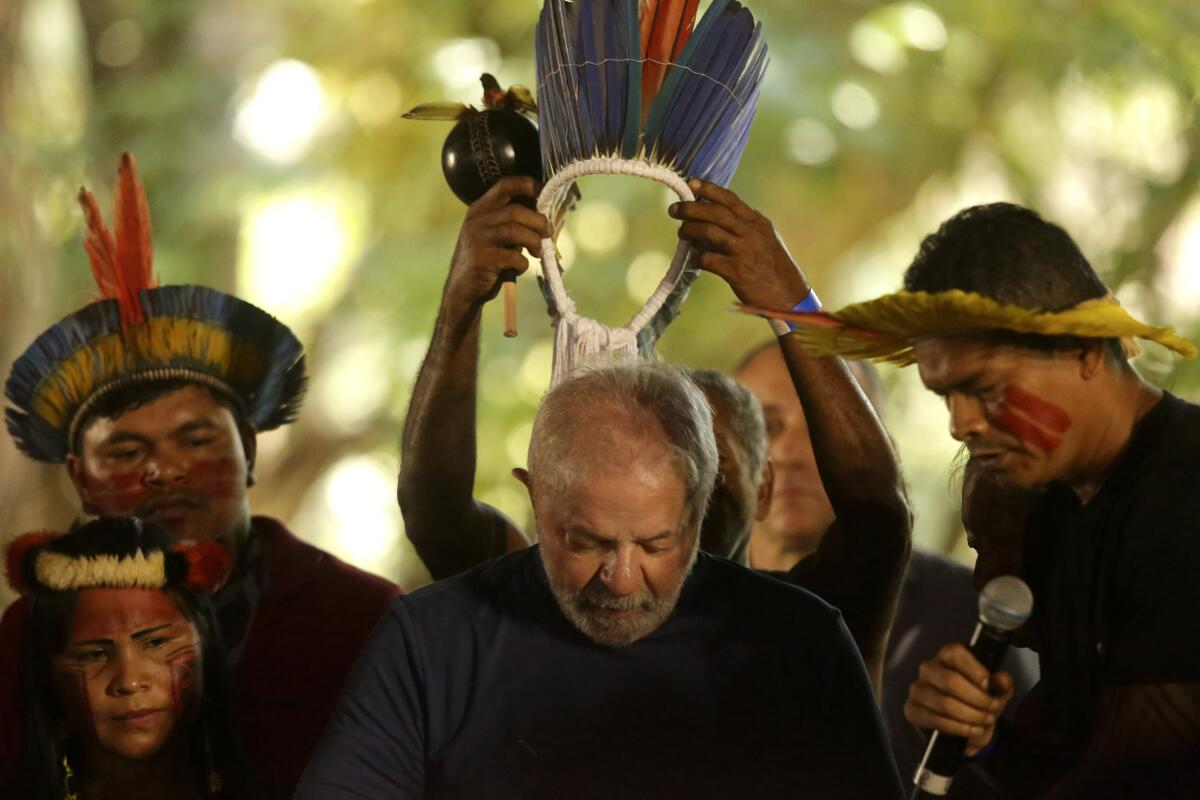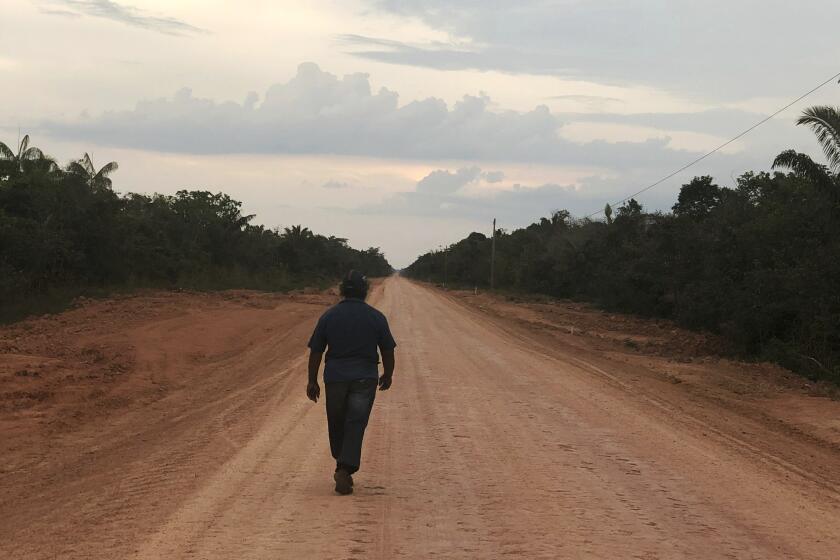Back as Brazil’s president, Lula will face hurdles in protecting the Amazon

- Share via
RIO DE JANEIRO — Brazilian President-elect Luiz Inácio Lula da Silva has promised to reverse a surge in deforestation in the Amazon jungle, but to do so, he’ll have to boost environmental law enforcement, face a hostile Congress and deal with state governors who have strong ties with the defeated far-right incumbent, Jair Bolsonaro.
“We will once again monitor and do surveillance in the Amazon. We will fight every illegal activity,” Lula said in his victory speech Sunday in downtown Sao Paulo. “At the same time, we will promote sustainable development of communities in the Amazon.”
The job will be an immense one. The area deforested in Brazil’s Amazon reached a 15-year high from August 2020 to July 2021, according to official figures. Satellite monitoring shows the trend in 2022 is on track to surpass the previous year.
On the ground, the main challenge will be to rebuild environmental agencies. Lula, whose third term as president is to begin Jan. 1, also promised to create a ministry of Indigenous affairs headed by an Indigenous person.
Under Bolsonaro, these agencies have been led by appointees close to the agribusiness sector, which has long pushed for the legalization of land confiscation and opposes the creation of protected areas such as Indigenous territories.
In 2023, the agribusiness sector, which backed Bolsonaro’s failed reelection bid, will control about half of the Congress’ members. In recent years, the caucus advanced bills to ease environmental legislation.
The Brazilian government has granted a preliminary environmental permit for paving a controversial highway that could lead to deforestation.
At the state level, 6 out of 9 governors of states that include the rainforest are Bolsonaro allies, most of them with strong ties with agribusiness.
One, Marcos Rocha of Rondonia state, got reelected two days after he made a high-profile bid to burnish his anti-environment credentials by removing official protection from a conservation area about double the size of New York City.
Lula has to use his support at the ballot box to promote his environmental agenda, according to Caetano Scannavino, coordinator of Health & Happiness, an Amazon nonprofit organization that supports sustainable projects in the Tapajos basin.
“Most Brazilians have expressed opposition to deforestation and violation of Indigenous rights,” Scannavino said. Lula, he said, “has to seize this clamor and gather academics, nonprofits and the more responsible sector of the agribusiness. The challenge is to make the environment a state policy independent of left or right.”
On the international front, Lula’s promises to preserve the world’s largest rainforest have already found supporters. The Norwegian government indicated that it would resume its multimillion-dollar donations to finance anti-deforestation policies, based on their performance.
“Norway looks forward to revitalizing our extensive climate and forest partnership with Brazil,” the Norwegian minister for climate and environment, Espen Barth Eide, wrote on his Twitter account.
More to Read
Sign up for Essential California
The most important California stories and recommendations in your inbox every morning.
You may occasionally receive promotional content from the Los Angeles Times.













